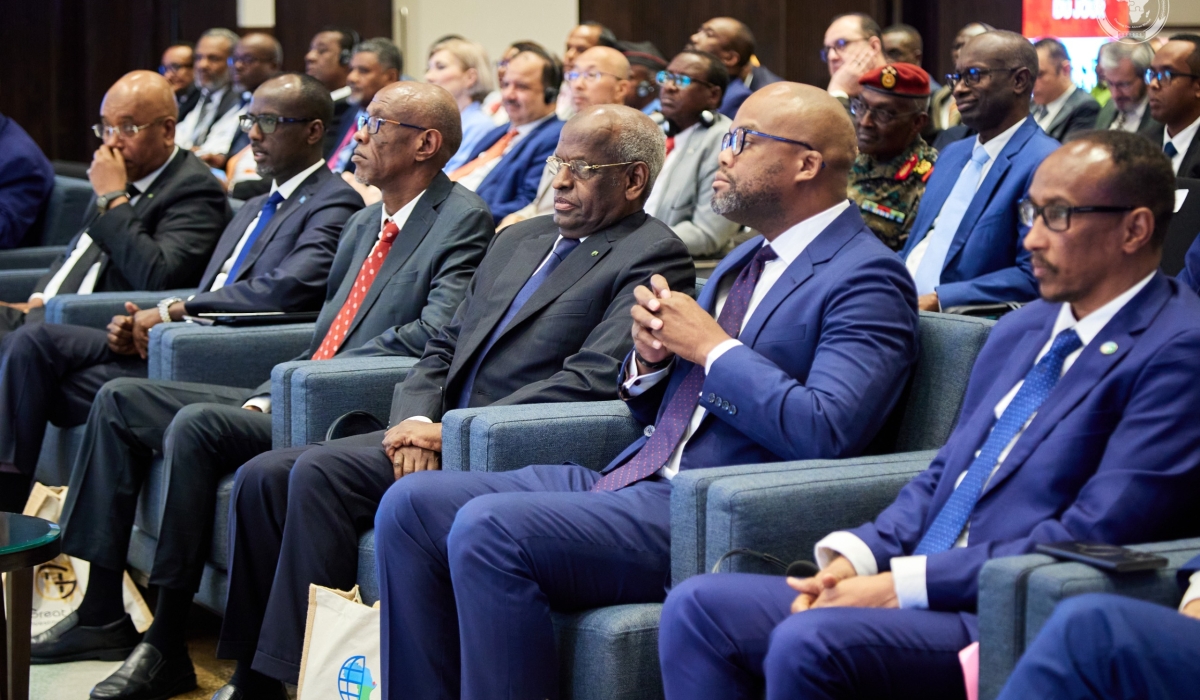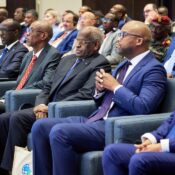
Mene of the AfCFTA claims that the tariff situation presents a chance to increase intra-African commerce
Secretary General of the African Continental Free Trade Area (AfCFTA) Wamkele Mene said the current global tariff issue, particularly the US-imposed ones on African nations, offers a chance to be resilient by concentrating on boosting intra-African trade.
The US President Donald Trump administration’s tariff hikes from January to April have been hailed by experts as the start of a new economic age that will alter international relations, economic policy, and global supply networks.
Many African nations that were exporting under the African Growth and Opportunity Act (AGOA) were among the nearly all items imported into the US that were affected by the tariff increases. In 2018, Rwanda ceased to be a member.
At the commencement of the AfCFTA Regional Conference on Special Economic Zones in Djibouti on April 21, Mene admitted that the tariffs would have a detrimental effect on African nations. But he pointed out that the crisis had to be viewed as a chance.
A coordinated continental approach to respond to the tariffs and expedite the implementation of the AfCFTA was decided upon at the last meeting of the Council of Ministers, which was held a week ago, he added. “We must take this crisis as an opportunity for our continent to seize the moment to deepen and accelerate intra-Africa trade,” he said.
He stated that the mechanisms for intra-African trade liberalization will address the current issue by accelerating Africa’s industrial integration and promoting production in special economic zones.
“We are in fact negotiating a very difficult global environment that calls for strategic solutions, which will necessitate doubling down on economic resilience and diversifying our export markets.”
“We can achieve greater self-sufficiency as a continent, increase trade between African countries, and develop truly continental value chains that benefit all countries across our continent,” he added, advocating for a more robust economic base through collaborative efforts.
Of the 55 states that are members of the African Union, 49 have successfully completed the ratification process, indicating that they have agreed to the duties of lowering and removing trade barriers within Africa. Through the establishment of an African market for services, merchandise, and the digital economy, the AFCFTA presents previously unheard-of chances to boost intra-African commerce, draw in foreign investment, and lessen reliance on others.
Africa has more than 200 special economic zones, with more than 70 projects already in development, according to the African Economic Zones Outlook.
The African Union’s Assembly of Heads of State and Government enacted a ministerial regulation on the treatment of products from special economic zones (SEZ) to support this momentum. This regulation ensures that products and services that are produced and originate in SEZs and that comply with origin regulations are now fully integrated into Africa’s single market.
Mene claimed that this action will boost special economic zones’ competitiveness, allowing them to produce at affordable prices and support the industrialization of Africa. According to him, Africa’s economy must be resilient in order to withstand the external shocks and current instability that the multilateral trade system is experiencing.
The new chairperson of the African Union Commission, Mahamoud Ali Youssouf, reaffirmed that intra-African trade and its increasing significance represent an alternative and an essential necessity in the escalating global tariff war. He stressed the need to operationalize AfCFTA mechanisms, expand the AfCFTA’s Guided Trade Initiative, and address non-tariff barriers between African nations.
Although difficult times are to be expected, he stated that now might be the moment to seize possibilities. SEZs will be among the tools required to adjust to the new global circumstances.
All Categories
Recent Posts
Tags
+13162306000
zoneyetu@yahoo.com



